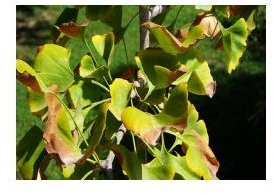Natural Remedies for Dementia: How to Slow Brain Deterioration
What is Dementia?
Dementia itself is not a disease, but the result of a disease or infection which leads to a loss of brain cells. It manifests as a number of symptoms which worsen, and eventually lead to a state of complete mental disorder. The early signs of dementia may appear mild, even resembling other neurological disorders, such as depression. Someone who has had dementia for a long-period of time is incapable of taking care of themselves. Unfortunately most cases cannot be cured, although natural remedies for dementia have proven effective in retarding this degenerative illness and quelling some of the symptoms.
Who suffers from dementia? Anywhere from fifty to sixty percent of cases are due to Alzheimer’s disease, leaving the elderly to be the primary victims of senility. Cases that are due to alcohol or drug abuse, prescription medication, poor nutrition and removable brain tumors are generally treatable, that is if the early signs are noticed. Ten percent of cases fall into this category. When caused by an illness that itself causes degeneration, such as Alzheimer’s, Parkinson’s disease and Huntington’s disease, it cannot be cured, only helped by either medication or natural remedies for dementia. This is also the case for senility caused by strokes, kidney, liver and lung damage, AIDS dementia complex and serious or multiple head injuries.
The Symptoms and Early Signs
The first symptoms of dementia sufferers will be short-term memory loss and disorientation. Mood swings, irritability, problems with speech, such as forgetting a common word, and poor hygiene are all early signs of dementia as well. The symptoms will become more and more severe over time; for example, someone may forget what they had for breakfast that morning, and then what they did five minutes ago, but recall events that happened decades in the past. People with evolved dementia can be in their own neighborhood, become confused, and have no idea where they are. It is very important to recognize these signs, as care for sufferers, whether it be medication, natural treatment for dementia or both, can significantly slow the process of brain cell deterioration.
The Benefits of Nutrition for Preserving Brain Health
A healthy diet and the addition of nutritional supplements can both prevent senility and benefit someone who already is losing some of their mental capabilities. Foods such as red meat, canned and processed foods and excess sugar should be either eliminated or minimized. As strokes are sometimes a cause of dementia, it is important to eat a high-fiber diet, with plenty of whole grains, as well as raw fruits and vegetables.
The B-complex vitamins are extremely important — they help to nourish and support brain function. Deficiencies are common in the elderly because our bodies absorb less of these nutrients as we age. Food sources of the B-vitamins include eggs, brown rice, nutritional yeast, wheat germ and seafood. They can also be taken as supplements.
Other supplements to consider for treating dementia would be evening primrose, flaxseed or borage oil, which are all rich sources of essential fatty acids; garlic, which both supports brain function and helps to reduce stress; vitamin C, which improves circulation, and is a powerful antioxidant; vitamin E, another antioxidant, which also increases cerebral circulation; and kelp supplements — kelp is known to nourish brain tissue as well as nerve cell membranes.
Beneficial Herbs
There are a number of herbs which can serve as natural remedies for dementia. Ginkgo biloba is widely used as an herb to enhance brain function and memory. It increases circulation, supports brain tissue and has antioxidant-acting compounds, helping to destroy free radicals and protect brain cells. Ginseng is another beneficial herb, improving both endurance and blood flow to the brain.
The Chinese herb, qian ceng ta, supplies a compound known as hyperzine A, which may increase mental agility, memory and language ability in Alzheimer’s patients. Hyperzine A works by regulating the brain chemical acetylcholine, which plays a role in learning and memory.
Ayurvedic herbs, such as gotu kola and calamus root are considered memory-enhancement herbs. They both stimulate brain tissue, increasing the flow of energy, while at the same time having a calming effect on the mind.
As many sufferers may be on medication for other other illnesses which may have contributed to the dementia, it is important to seek the guidance of a health care practitioner. Some herbs may conflict with medications that a patient may already be on.
A senile mind is no longer inevitable once we reach old age. The most powerful treatment for dementia is prevention; a healthy diet, active lifestyle and balanced mind will protect the body from the diseases which can lead to senility in the first place. If the early signs are recognized, then it is time to nourish and stimulate the brain cells with simple, natural remedies for dementia, after talking to your doctor.
References
Balch, Phyllis A. “Prescription for Nutritional Healing.” Fourth Edition (Penguin Books, 2006).
Lad, Dr. Vasant. “Ayurveda: The Science of Self-Healing.” (Lotus Press, 1984).
Page, Linda. “Healthy Healing: A Guide to Self-Healing for Everyone.” Eleventh Edition (Traditional Wisdom, 2003).
photo credit: Christianocani
Please read this disclaimer regarding the information contained within this article.
